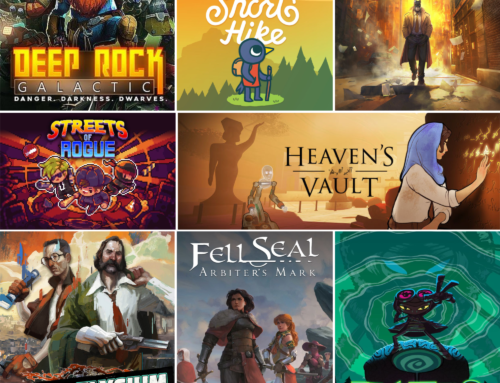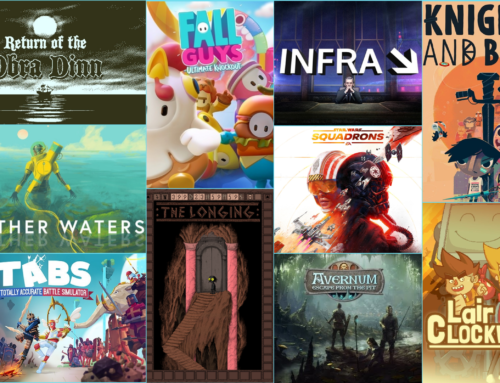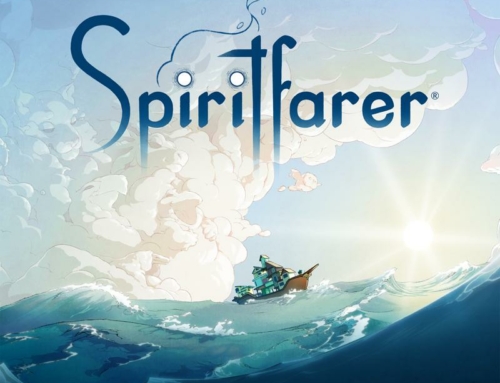Author’s Note: This is the third letter in a four-letter series discussing 1979 Revolution: Black Friday. You can find Part One here, Part Two here, and Part Four here. All posts contains spoilers.
Hey Joanna,
The question of what agency means in games is as important as it is tired. I’m not sure 1979 Revolution is the best game to really dig deep down into this question because, as you say, the mistakes seem more like amateurism than a wise developer struggling against the fundamental restrictions of the medium. But it does raise an interesting question, which is: why do the developers feel it is so important for us to believe we are dictating the narrative? I almost wonder if it’s overcompensation for the developer’s background in film and cinematic; they are very conscious of what is and is not a film, and perhaps feel that they need to “justify” their decision to make a video game.
From a historical perspective, this is odd. A linear story has been the medium’s standard since its origins. The player’s agency was in engaging with the mechanical aspects and challenges, and insofar as they had agency over the narrative, it was in the role of editor; all the scenes had been shot, but the player could determine how long they lasted, in what order they happened, etc. (this is a particularly good analogy for early text adventures). Yet this design is far from archaic: today’s biggest single-player games (the Call of Dutys and Grand Theft Autos and Assassin’s Creeds) all follow this rubric to a tee, offering no meaningful choice in the narrative portions and in fact largely relying on entirely-fixed cutscenes. Despite whatever criticisms I may have of these particular games and their storytelling, the fact remains that there are many games that have done this successfully and continue to do so. To address your main complaint, I think you’d agree that the main problem is not that you don’t have control over the narrative, but that the game promises you narrative control but doesn’t actually deliver.
What makes this particularly weird – in this game, in The Walking Dead, and in so many games that pull the same trick – is that it can’t really be construed as an accident. The developers know *exactly* how reactive their narratives are (or aren’t). So we can only assume that they are consciously employing smoke and mirrors, they they hope that the player won’t notice. As I wrote last time, I think this can be a viable path – but it’s not nearly as easy as it looks, and I’m put out every time a developer fails at it, because it feels like they think I’m stupid. So I guess the pat lesson here is that authenticity matters in video games, too; and there is perhaps no bigger example of this than the furor over No Man’s Sky, in which almost all of the negativity has to do with the gap between expectations and reality rather than the problems of the game itself.
Of course, it’s possible to go too far in the other direction. This past week, a new FMV game called The Bunker came out, and it’s well worth reading John Walker’s review of it. The long and short of it is that somebody made a (very good, by the sound of it) movie that required you to click a few times to progress. The assumption on the part of the developers is that this minimal level of activity will elevate the game above a film (they must believe that; otherwise they would have released their game as a film, right?). I feel like, in the games space, interactivity is almost fetishized, preciously grasped on to as the One Thing video games can do that nothing else can (and my book is certainly guilty of this!). And yet most people want direction. Arguably the game that gives players the Most Choices is Second Life, bu virtue of the enormous amount of freedom it gives players; but, of course, “choice” here means being overwhelmed with options and having to put in a lot of work to make the tools do what you want. Part of this is a design issue, but the other part is that the primary way we make a thing accessible is by stripping away options and limiting control (see: Apple products). Not to be too reductive, but choice is not a value in and of itself; it’s whether the choices are compelling and meaningful, and whether they stay that way.
One of the issues with 1979‘s abrupt ending is that we do not simply evaluate choices in the moment; it is entirely possible for a choice to be interesting when you make it only to create a moment of intense frustration later. I am greatly satisfied that Deus Ex: Mankind Divided allows me to play non-lethally; but the narrative’s continued failure to *recognize* that I am playing non-lethally actually makes the game considerably more frustrating than if it was just a normal, full-lethal shooter. Likewise, 1979 gives us a bunch of choices whose real meaning will only reveal themselves with time; time we are never given, and so they feel arbitrary.
-Dylan





[…] in a four-letter series discussing 1979 Revolution: Black Friday. You can find Part Two here, Part Three here, and Part Four here. All posts contains […]
[…] Friday – a game about Iran in 1979. In addition, his response to this letter can be found here, and I finish the letter series here. All the […]